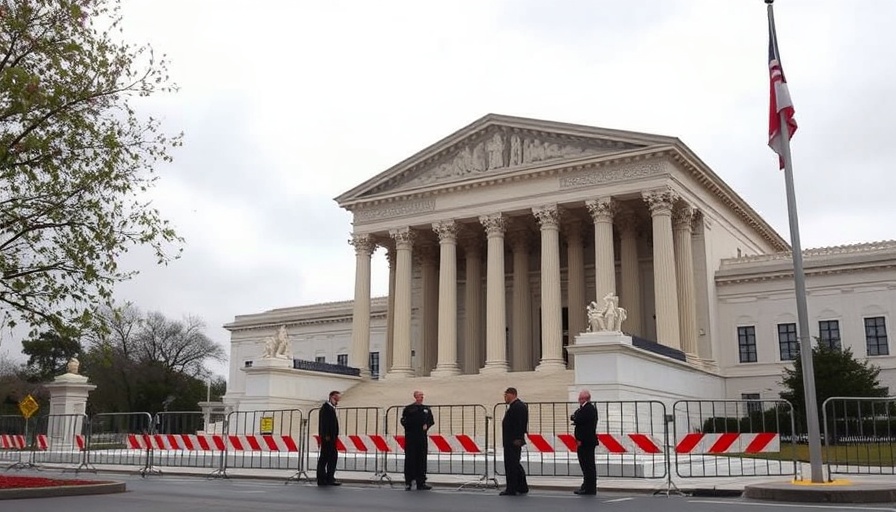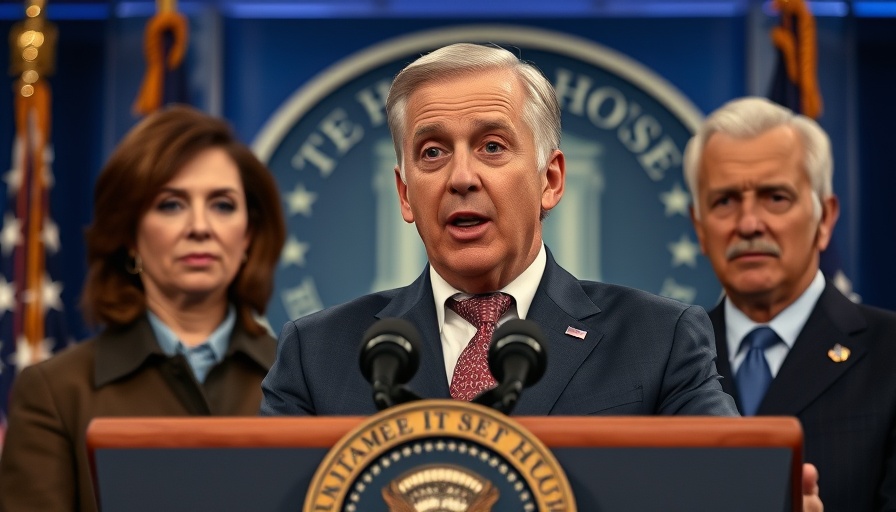
The Supreme Court's Landmark Decision: Implications for Families
As the Supreme Court's recent ruling intensifies the national debate on birthright citizenship, families find themselves at an uncertain crossroads. The decision not only limits nationwide injunctions against President Trump's controversial executive order but also ignites a myriad of questions regarding its practical implementation. With the potential end of automatic citizenship for children born to non-citizen parents, parents across the United States are left to ponder how this shift might affect their families.
Understanding Birthright Citizenship
Birthright citizenship in the U.S. is grounded in the 14th Amendment, which guarantees citizenship to all persons born in the country. Over the years, this legal foundation has served as protection for many families, especially those of immigrant backgrounds. The recent ruling, empowering the administration to implement changes, marks a significant moment both for legal landscapes and personal lives across America.
Practical Aspects of Implementing Trump's Order
The ruling has raised immediate questions that need answers: how will pregnant women be treated in hospitals? Will they be required to present documentation to secure citizenship for their newborns? These questions reflect deeply on the everyday lives of families, navigating healthcare, child-rearing, and the complexities of citizenship status.
The Road Ahead: Legal Challenges Loom
In light of the ruling, several states and advocacy groups are already gearing up to challenge the executive order. Federal courts in states like Maryland and Massachusetts are expected to revisit prior nationwide injunctions, adding another layer to the legal struggle surrounding this issue. The diverse perspectives from legal experts and civil rights advocates reveal an underlying consensus: the fight for citizenship rights will continue to unfold in courtrooms across the country.
Family Experiences: Emotional Insights and Reactions
The emotional impact of the Supreme Court's decision cannot be overstated—especially for those families who have fought hard to ensure their children’s rights. Many parents are sharing their fears about the future and the uncertainty it brings to their children’s identities. This personal narrative is essential in understanding the broader implications of policy changes.
Future of Birthright Citizenship: What's Next?
Looking forward, the debate over birthright citizenship is poised to evolve as various stakeholders weigh in. While some advocate for change citing legal and economic factors, others strongly defend the status quo rooted in American principles. This divergence not only highlights political divisions but reflects cultural narratives that will shape our nation’s direction.
Conclusion: Continuing the Conversation
The recent Supreme Court decision serves as a pivotal moment, spurring both legal and community action. As families navigate the complexities of citizenship and identity, staying informed and engaged will be essential. Parents are encouraged to voice their concerns, participate in community discussions, and advocate for equitable treatment that embodies the true spirit of the 14th Amendment.
Join the conversation about birthright citizenship and its implications on family futures. Engage with local advocacy groups, attend community roundtables, and lend your voice to ensure that every child born in America retains their rightful place in society.
 Add Row
Add Row  Add
Add 




 Add Row
Add Row  Add
Add 

Write A Comment